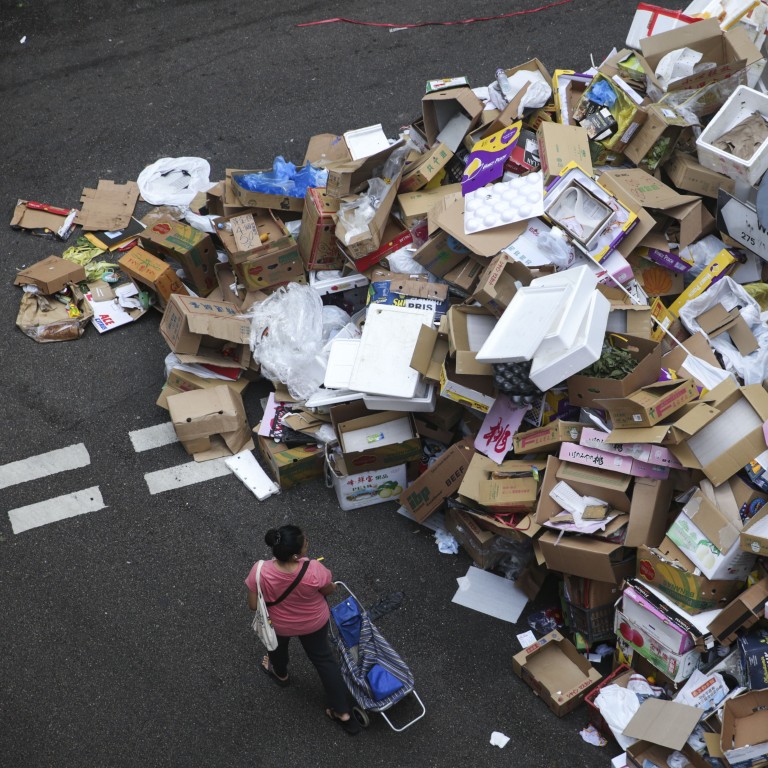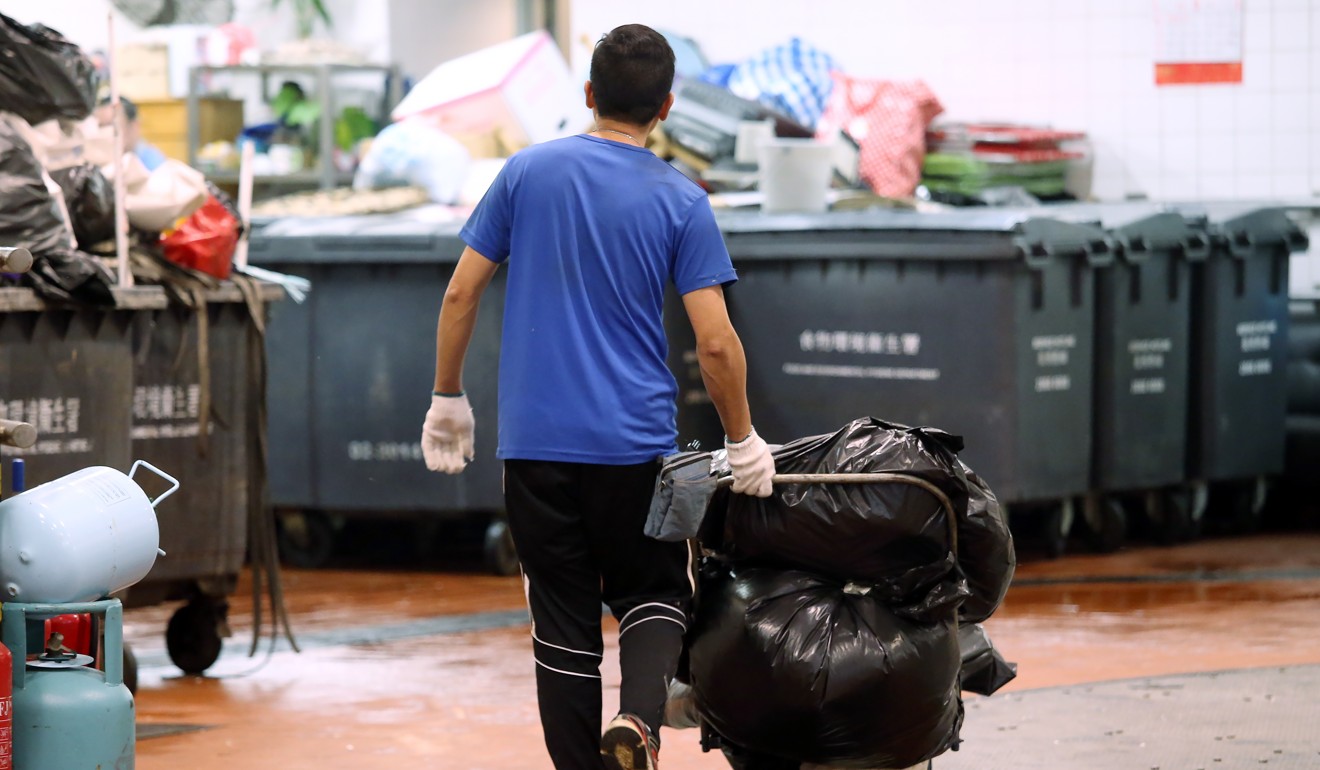
Industrial waste in landfills up a fifth as China-bound rubbish piles high in Hong Kong
- Stricter requirements on waste imports to the mainland mean rubbish sent from abroad has been stranded in Hong Kong
The amount of industrial waste ending up in Hong Kong’s landfills rose by a fifth last year as mainland China began shutting out waste imports from around the world, the latest official figures show.
Industrial rubbish, the third biggest contributor to municipal solid waste behind households and the commercial sector, rose 20 per cent from about 925 tonnes per day in 2016 to 1,100 tonnes, according to as yet unreleased statistics from the Environmental Protection Department.
The 185-tonne daily increase would have amounted to 67,525 tonnes in the year, or roughly the weight of 3,300 standard-sized empty cargo containers, environmental group The Green Earth, which obtained the figures, pointed out.
Yearly average increases over the last five years have hovered at between 2 and 11 per cent.
In general, commercial and industrial waste, which the government groups together as “C&I”, has been going up, but mainly driven by the former as a result of economic growth and consumption patterns.

Green Earth director of environmental advocacy Hahn Chu Hon-keung said there was no real correlation between growth in gross domestic product and industrial waste production.
“Industrial waste disposal was disproportionately higher than GDP growth last year,” Chu said. “In the past, the disposal rate has even been lower than GDP growth, for example, in 2014, when growth was 2.8 per cent.”
Christmas shopping online creates waste mountain of packaging from luxury retailers
That year the rate of industrial waste disposal increased by 11.6 per cent.
Chu surmised that China’s curbing of waste imports had caused mainland-bound shipments of waste from all around the world to pile up in the city, on top of its own waste.
“To an extent, this 20 per cent comprised the first wave of waste to enter [Hong Kong] after China shut its gates,” he said. “The government failed to take early preventative measures. If it does not identify and tackle the problem at source, the impact beyond 2018 will be even greater.”

All waste must now be processed into clean raw material – plastics into pellets, for example – at a high cost to be allowed into the mainland. But Hong Kong does not have the capacity to do so.
Jacky Lau Yiu-shing, director of the Recycle Materials and Reproduction Business General Association, said the small scale and uncompetitiveness of Hong Kong’s industry meant the waste mostly ended up in the tip.
This was despite copper in wires, their PVC jackets and plastic film used in logistics commanding a high recyclable value.
Hong Kong produced three times as much tree waste this year as in 2017, mainly thanks to Typhoon Mangkhut
“Housing estates have management firms to deal with their waste but if you’re a profit-maximising business or factory, what incentive do you have to pay someone to collect and do the recycling?” Lau added.
He said the 2018 figures would probably reflect a similar situation but there would be fewer foreign sources as they would have already found other destinations.
In 2017 Beijing said it would ban more than two dozen types of “loathsome foreign garbage” including waste paper, plastics, textile materials and metal slag due to the environmental and health impacts.
Since the 1980s about half of the world’s recyclable plastics, paper and scrap metals have been absorbed by China to meet its insatiable demand for resources. Half of those exports ended up on the mainland, either directly or through Hong Kong.
A spokesman for the Environmental Protection Department said the increase in industrial waste last year was a result of economic expansion but also because of a decline in demand for recyclable materials and stricter controls by importing countries. Municipal solid waste charging in 2020 is expected to help ease the problem. The department also stressed that it was illegal to export waste to Hong Kong for disposal.

